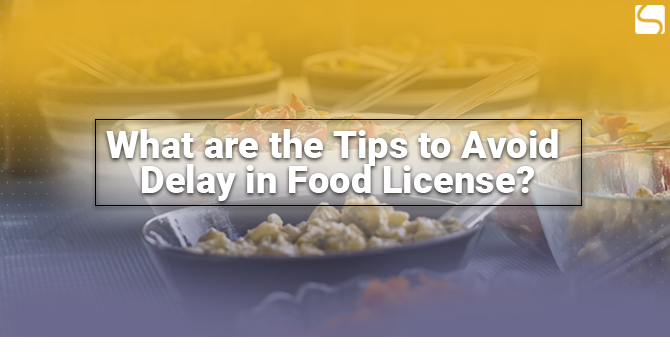FSSAI Licence: Understanding the Types and Significance

Shivam Narwal | Updated: May 02, 2023 | Category: FSSAI
Food is the most fundamental and vital requirement for everyone. We cannot survive in any way without it. Understanding the significance of this issue, the government has established organisations that work tirelessly to guarantee that the food we consume is sound and nutritious. They recognise that something that impacts the entire country must be done quickly and efficiently. The Food Safety and Standards Association of India (FSSAI) is one of these organisations. It operates in accordance with the provisions of the Food Safety and Standard Act, 2006, and is dedicated to establishing appropriate standards for food products at every level. The FSSAI is in charge of making sure that all food-related laws and rules are adhered to by food enterprises all across the nation. The acquisition of a Food licence registration is one of the primary prerequisites for food enterprises in India. The advantages of having an FSSAI licence and various food licence kinds in India will be covered in this blog.
Table of Contents
Why is it essential for you to register with FSSAI?
To get started, anyone who operates a food business of any kind (i.e., a food business operator) is required to register with the FSSAI or possess a licence. Extremely small businesses enjoy exemption from this rule, though, as long as they register with the food authority. You should register with the FSSAI for a number of main reasons, including:
- It promotes trade without jeopardising people’s concerns about their safety.
- FSSAI registrations improve a company’s credibility since they provide customers more assurance that the food they are purchasing is both safe and of a high standard.
- Multiple regulations on obtaining approvals could be eliminated.
- It helps to promote new food developments.
- The penalties for operating a food business without an FSSAI licence are significantly more severe than the license’s real cost. Therefore, if you are running a food business in India, getting an FSSAI licence is always the smartest move.
Core Benefits of FSSAI Registration
There are many benefits of obtaining a food licence in India. Some of them are listed below:
- Elimination of risks: In addition to lowering the risk of foodborne illness, obtaining an FSSAI licence can also help with other food safety concerns. This is so that the FSSAI may periodically examine food enterprises to make sure that the criteria it sets for food safety and quality are being upheld. Therefore, by adhering to these standards, food companies can lower the risk of food safety issues and safeguard their clients.
- Increased brand goodwill: Businesses that sell food can improve the goodwill of their brands by acquiring an FSSAI licence. A FSSAI licence effectively serves as evidence to customers, suppliers, and other interested parties that the food industry maintains quality and safety. As a result, a solid brand reputation can result in greater client loyalty and improved sales.
- Information availability: Food establishments that receive an FSSAI licence also have access to beneficial data and tools on food quality and safety. The FSSAI regularly updates and offers advice on best practises, which can assist food firms enhance their operations and keep informed of the most recent changes in the market.
- Gaining trust of consumers: The food business displays to consumers its dedication to food quality and safety. Food businesses with an FSSAI licence are more likely to attract customers as consumers become more conscious of the significance of food safety. This might assist food businesses in winning the trust and loyalty of their customer base.
- Compliance with law: Compliance with the law is the most evident advantage of acquiring an FSSAI licence. All food enterprises, including manufacturers, merchants, and restaurants, are required to obtain an FSSAI licence, according to the FSSAI. Therefore, obtaining a licence allows food businesses to avoid going to court and paying fines for breaking the law.
- More and better opportunities: A FSSAI licence could help food-related businesses in growing their operations. For instance, food companies with an FSSAI licence can deliver their goods to hospitals, schools and government organisations that demand that their suppliers hold an FSSAI licence. For food-related businesses, this may create new commercial prospects.
Types of FSSAI Licence in India
In India, there are 3 types of food license registrations. They include:
- Basic FSSAI Licence: Petty food sellers, small-scale producers, temporary market vendors, small-scale storage and distribution business owners, and anyone with an annual revenue of less than Rs. 12 lakhs must all obtain this licence. This has a duration of 1 to 5 years and is issued by the state government[1].
- State FSSAI Licence: The State FSSAI Licence is required for all small- to medium-sized business owners who operate as producers, sellers, traders, or distributors and have a yearly revenue of in excess of 12 lakhs. All individuals involved in the food sector are granted this licence by the appropriate state government. This licence is valid for a minimum of one year and a maximum of five years.
- Central FSSAI Licence: All business owners who run large-scale food operations must get a Central FSSAI licence. This licence is required for all significant manufacturers, retailers, exporters, and others who work with Central Government agencies or operate in seaports and have annual sales of more than 20 crore. The Central Government issues this licence, which has a 1 to 5 year term.
Procedure of Registration under FSSAI
The process of registration under FSSAI is pretty simple and easy task. The process is discussed in the points as given below:
- Understanding the classification your business belongs to is a prerequisite for registration. Since it determines what kind of licence you require, this step is the most important one.
- You must possess several necessary documents in order to register with the FSSAI. The type of registration/license you need will depend on its category.
- The process of registering under the FSSAI is rather straightforward. To begin with, if you qualify for a basic registration, you must complete Form A and submit it to the registration authority together with a self-declaration form ensuring that you will adhere to the rules of food safety. The form B must be completed, however, if you fall under the second category and require a state or central licence.
- The appropriate authorities would inspect your business after you submitted your registration and would then approve it if they felt that your business complied with the necessary regulations.
- The competent authorities will issue your registration certificate or the required licence within 60 days if everything is in order.
Conclusion
Our food’s safety and quality are crucially protected by the Food Safety and Standards Association of India (FSSAI). It is tasked with establishing acceptable standards for food products at all levels and ensuring that all food-related laws and regulations are complied with food enterprises across the nation. It is governed by the Food Safety and Standards Act of 2006. It is mandatory for everyone running a food business in India to register with the FSSAI. It encourages safe trading, improves a company’s reputation, removes the need for multiple approvals, encourages the development of novel foods, and assures legal compliance.
Read our Article:FSSAI License Number: Concept & Process to Check It Online












